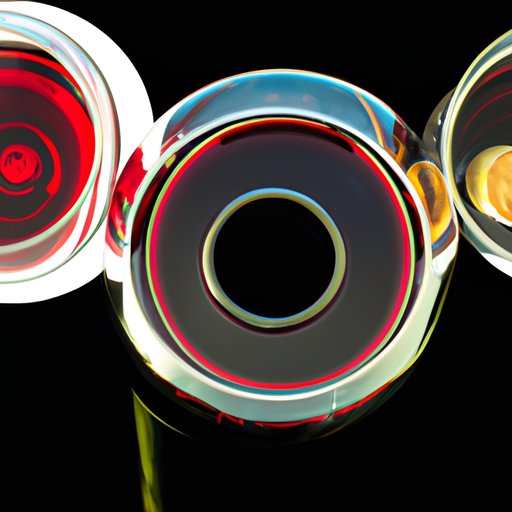
I. Introduction
Wine is a popular alcoholic beverage enjoyed by many around the world. However, there is still confusion surrounding the effects of wine and whether or not it can make you drunk. In this article, we will explore the science behind how alcohol affects the body and debunk common myths surrounding wine consumption. We will also discuss how the type of wine, alcohol content, and drinking speed can impact your level of intoxication.
II. The Science of Wine: Understanding How Alcohol Affects You
Wine is made by fermenting grapes, which creates alcohol as a byproduct. When consumed, the alcohol enters the bloodstream and travels to the brain, where it affects neurotransmitters and causes feelings of euphoria and relaxation. However, alcohol can also impair decision-making, coordination, and cognitive functioning.
Factors such as age, weight, gender, and overall health can impact alcohol absorption and metabolism. It is also important to note that different types of alcoholic beverages can have varying effects on the body.
In order to calculate your blood alcohol concentration (BAC), it’s important to consider the amount of alcohol you’ve consumed and the length of time it takes to metabolize it. BAC is a measure of the amount of alcohol in your bloodstream and is used to determine if you are legally intoxicated.
III. Debunking Wine Myths: Does Wine Really Make You Drunk?
There are many myths surrounding alcohol consumption, including the idea that wine doesn’t make you drunk. While it’s true that wine generally has a lower alcohol content than spirits, it can still have the same effects on the body if consumed in excess.
Some people may believe that wine doesn’t make you drunk because it is often consumed with food or sipped slowly. While this can slow down the rate of alcohol absorption, it doesn’t change the fact that the alcohol is still affecting the brain and body.
Wine can also have a cumulative effect, meaning that drinking several glasses over a period of time can increase your level of intoxication.
IV. Wine vs. Beer: Which One Gets You Drunker?
Wine and beer both contain alcohol, but wine tends to have a stronger effect on the body due to its higher alcohol content and faster absorption rate. A standard glass of wine contains around 12% alcohol, while a standard beer contains around 5% alcohol.
However, the amount that you drink and how quickly you drink it can also impact your level of intoxication. Drinking a large amount of beer in a short period of time can have the same effects as drinking several glasses of wine.
V. Sipping vs. Gulping: How Your Wine Consumption Affects Your Intoxication
The speed at which you consume alcohol can impact how much alcohol you consume overall. Sipping wine slowly can help decrease the rate of absorption and lower your overall blood alcohol concentration. On the other hand, drinking wine quickly or gulping it down can increase your BAC and lead to faster intoxication.
It’s important to pace yourself while drinking wine and consume it in moderation. This can help prevent dangerous levels of intoxication and keep you safe while enjoying your beverage.
VI. The Grape Debate: Exploring How Different Wines Affect Your Level of Drunkenness
Not all wines are created equal, and different types can impact your level of intoxication in varying ways. Red wine, for example, contains more tannins and can cause a quicker onset of intoxication. White wines, on the other hand, often have a lower alcohol content and absorption rate.
Rosé wines fall somewhere in the middle, with moderate alcohol content and absorption rates. It’s also worth noting that the quality and age of the wine can play a role in its effects on the body.
VII. Alcohol Content Matters: Understanding How High ABV Wines Can Impact Your Sobriety
Alcohol by volume (ABV) is a measurement used to determine the amount of alcohol in a beverage. Wines with higher ABV levels can have a stronger impact on the body and lead to faster intoxication. It’s important to take the ABV into consideration when selecting a wine to drink.
If you’re looking to enjoy wine without feeling overly intoxicated, look for wines with lower ABV levels. These can still offer a great taste experience without the risk of dangerous levels of intoxication.
VIII. Conclusion
Overall, drinking wine can be a fun and enjoyable experience, but it’s important to do so responsibly. Understanding the science behind alcohol absorption and metabolism can help you make informed decisions about your drinking habits. Remember to pace yourself, consume alcohol in moderation, and always prioritize your safety above all else.
By following these tips, you can continue to enjoy wine without putting yourself or others at risk of dangerous levels of intoxication.




